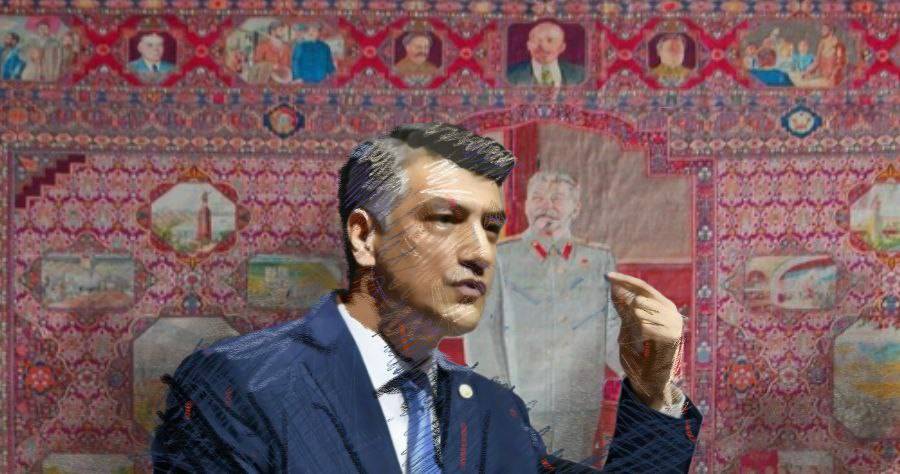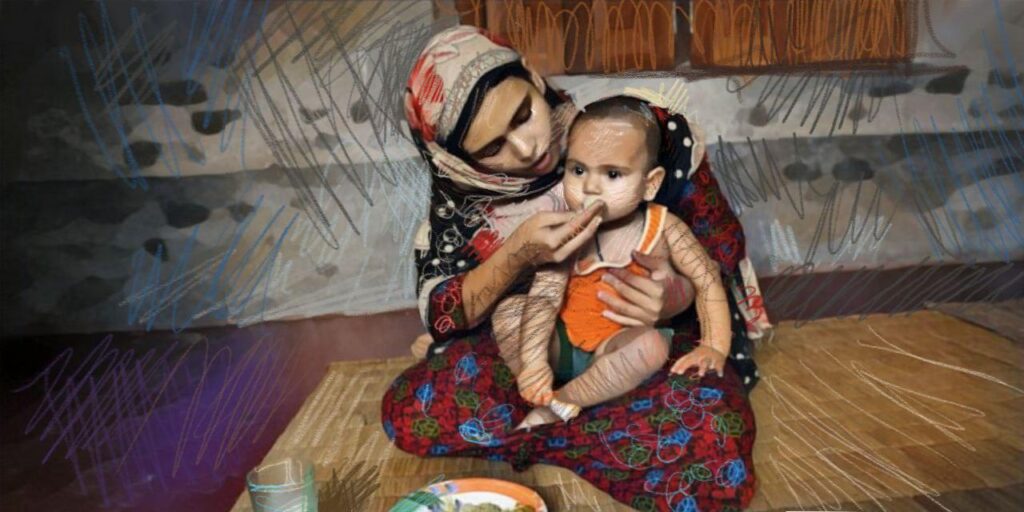Alisher Qodirov is 49 years old, the leader of Uzbekistan’s Milli Tiklanish (National Revival) party, the deputy speaker of the lower house of parliament, and a former presidential candidate.
And Qodirov is also a leading critical voice in Uzbekistan regarding the country’s Soviet past and comments of current Russian chauvinists.
On September 4, Qodirov wrote on his Telegram account that Soviet ideological propaganda should be banned in Uzbekistan. He was responding to a court verdict earlier that day against a 74-year-old pensioner in Samarkand who was found guilty of “encroaching on the constitutional order of Uzbekistan.”
Specifically, the man advocated the restoration of the Soviet Union and said Uzbekistan’s independence was superficial.
Qodirov wrote that Uzbekistan’s time as a Soviet republic was a “sad period of our history.” The Milli Tiklanish leader said even suggesting a recreation of the USSR was a “betrayal of our people and our ancestors, who became victims of the bloody regime.”
Qodirov continued that calls for Uzbekistan‘s reincorporation into some sort of a resurrected USSR “should be considered a crime against the constitutional order of the country.” The Milli Tiklanish leader said such thinking was a “betrayal of our people and our ancestors, who became victims of the bloody regime.”
Qodirov has expressed his opinion on the Soviet Union before.
When Uzbekistan marked May Day on May 1, 2021, the Soviet flag was raised during a concert of “Songs of Victory” in Tashkent.
Posting on Telegram, Qodirov called the incident “an insult and a provocation… to the Uzbek people to raise the flag of the Soviet occupying state in the very center of the capital, which is soaked in the blood of… our ancestors.”
Russian chauvinism has been rising since the Kremlin launched its full-scale war on Ukraine, and so have irredentist remarks from people on Russian television and officials in the State Duma. Kazakhstan, which shares a 7,800-kilometer border with Russia, is usually the target, but in the last year, Uzbekistan has been mentioned.
On December 20, 2023, Russian writer, nationalist, and co-chairman of the A Just Russia – For the Truth party, Zakhar Prilepin spoke about migrant laborers at press conference in Moscow.
The majority of migrant laborers in Russia are from Central Asia and Prilepin said, “These territories, from where migrant workers come to us, should simply be annexed entirely.”
Prilepin specifically mentioned Uzbekistan, as more than half the Central Asian migrant laborers in Russia come from there.
“Uzbekistan, for example… since two million of your citizens are on our territory, we claim your territory,” Prilepin told a press conference, and added, “Who will forbid us to do anything useful on the territory of the Eurasian territory after the parade in Kyiv? No one.”
Less than one month later, on January 22, 2024, Russia’s NTV television station showed an interview with a person identified as Mikhail Smolin, a historian. Smolin absurdly claimed the Uzbek nation never existed until after the Bolshevik Revolution of 1917. Smolin said the same about Kazakhs and Azerbaijanis.
That was apparently too much for Qodirov. On January 25, he called for cutting Russian television programming to Uzbekistan.
“Lately we hear nothing but chauvinistic statements in Russian,” Qodirov said, noting that such remarks from Russia were heard often enough that “it seems [the Russian authorities] are interested in such rhetoric.”
Qodirov pointed out only some three percent of Uzbekistan’s population comprises ethnic Russians, so Russian television is disproportionately represented in Uzbekistan.
In May, Qodirov offered a slight clarification to these statements.
He said he was a “Sovietophobe,” not a Russophobe, but added that the history of the USSR should remain “in the black pages of the history” of Uzbekistan and “should not be part of our future.”
Qodirov is known for making some sensational statements. When he was running for president in 2021, he suggested taxing remittances from migrant laborers.
Since some four million citizens are migrant laborers, and millions of family members back home depend on the money they send, the proposal was widely unpopular and might have been made intentionally to help ensure the overwhelming re-election of incumbent President Shavkat Mirziyoyev.
Which brings us back to the matter of Qodirov’s comments on Russia and the Soviet Union.
With the exception of the president, Uzbekistan’s political system does not allow officials to freely voice their opinions publicly, especially on foreign policy matters, and especially concerning Russia.
Qodirov would not be saying the things he is without approval from people high up in the government.
Some Russian officials and celebrities talk about taking back land from Central Asia, or make disparaging remarks about Central Asian people. Russian authorities downplay these comments as the opinions of individual Russian citizens that do not conform with the views of the Russian government.
Qodirov is in a similar position.
What he is saying about Russia is not the official view of the Uzbek government, but it is probably the message some people in the government want sent to Russia.









